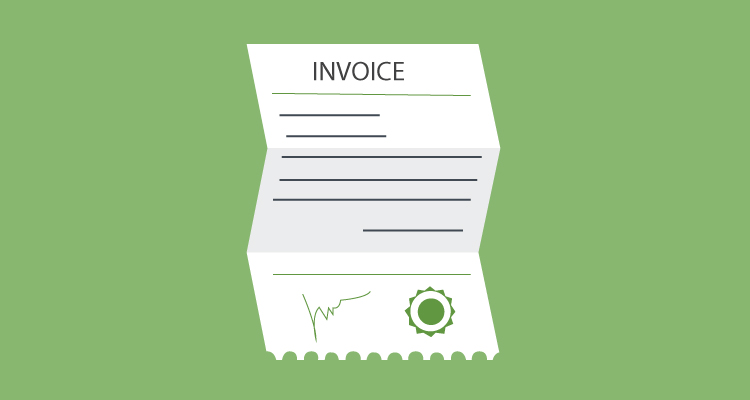According to our research, 63 percent of invoices are paid within 30 days. The good news is that a majority of invoices are in fact being paid. The bad news, however, is that it’s taking a month to get paid. Invoice timing matters.
That may not sound like a big deal, but when you’re waiting that long to receive a payment you’re putting your business in jeopardy. And, once a bill isn’t paid in 90 days, there’s only an 18 percent chance of ever receiving that payment.
That’s because it causes cash flow problems. If you’re not bringing money in, then how can you pay your expenses? And, if you’re not paying your bills, you’re getting penalized.
Even worse, there’s also the hidden costs of collecting late fees. For example, let’s say you have one employee making three calls a day. They spend twenty minutes per call and make $15 per hour. You’re going to end-up paying them $3,750 a year just to chase down unpaid invoices.
In short, the sooner you invoice, the better off you’ll be. But, if you’re still not convinced, here’s why invoice timing is everything.
Table of Contents
ToggleThe Advantages of Invoice Timing
Improves cash flow.
The main advantage of having a faster invoicing process is that it improves your cash flow. When you have a positive cash flow, you can pay your expenses like employees, rent, and inventory. When it’s negative, that means you’re spending more than you’re bringing-in.
Not to be facetious here, but you can’t operate a business when you’re spending more money that you’re making. It’s just not possible.
Additionally, according to a report from Atradius:
“Unpaid invoices can have a serious impact on a businesses’ turnover or cash flow. Not only because non-payment by buyers costs a business time and money in respect to pursuing collection of debts, but also because bad debt reserves represent money that is unavailable for use in growing the business. In addition, the longer the receivables remain outstanding, the lower the likelihood of turning them into cash.”
Avoids late fees.
If you’re not able to pay your expenses, then you’re going to get hit with late fees. This will vary, but the average annual cost of a late credit card payment is $700. Just imagine paying that on-top of the late fees you may encounter like your rent or mortgage and the penalties your vendors charge you.
Keeps your vendors happy.
Maintaining a positive relationship with your vendors, contractors, and other people your company owes payments too is good business sense. Even though they’re charging you a late penalty, if this becomes a recurring event, they’ll probably never want to work with you again.
And, can you blame them? It doesn’t make sense from them to also jeopardize their business.
Now that you don’t have vendors and contractors, your orders can’t be fulfilled. And if that happens, it’s going to be really hard to keep your business running.
Saves time and money.
Sure. You’ll save money because you’re not spending your hard-earned cash on late fees.
You can also save money by receiving early-payment discounts. You wouldn’t be able to do this if you didn’t receive a payment on-time. Additionally, you’re not paying anyone to hunt down any late payments.
Besides saving money, you’ll also save time. This is because instead of chasing past-due invoices, you or your time can focus on more important tasks that can grow your business.
When Should You Actually Issue an Invoice?
There’s no denying that invoice timing is vital. But, when exactly should you issue an invoice?
This may sound like a cop-out, but there isn’t one correct answer. It really depends on the size of the project and the relationship you have with the client.
For example, for small-scale projects or working with a new client, it’s acceptable to ask for the entire payment before you start a job. This will keep your cash flow positive and encourages you to follow through with you commitment. Most importantly, it ensures that the client won’t skimp on paying you.
For larger payments, you may want to consider a deposit. It’s traditional to request 50 percent upfront, while receiving the rest of the payment once the project has been completed. This again guarantees that neither party is going to get played.
If you’re working on a long-term project, then set-up recurring payments. This way you’ll automatically receive a payment each month without having to invoice the client.
The final option is issuing an invoice once you finish a job. Some companies prefer to invoice their clients immediately after submitting the final project. Others opt to send invoices every week.
However, you and the other party usually agree to this prior to starting work. You may both agree to be paid on a specific date, such as the first of the month. While there’s nothing wrong with going this route, it can make managing cash flow a problem since you only have money coming in once a month.
Get Your Invoices Paid on Time
Want to make sure that you’ll always get paid on-time? Then utilize these five strategies:
- Set clear and non-negotiable due dates. Agree on an actual due date with the client before starting work. Also avoid jargon like “net 15.” Use language like “due in 15 days.”
- Find the right contact. Just because you’ve been working with someone doesn’t mean that they’ll be the one paying you. Make sure you know who’s handling the billing so you can communicate with them directly.
- Use a digital solution. This will allow you to send and receive payments electronically, as opposed to waiting for a check via snail mail.
- Encourage recurring and automated payments. This will eliminate late-payments since the client will automatically be billed on a specific date each month.
- Request a deposit. Requiring a down payment ensures that you’ll have money coming-in while working on a project.













